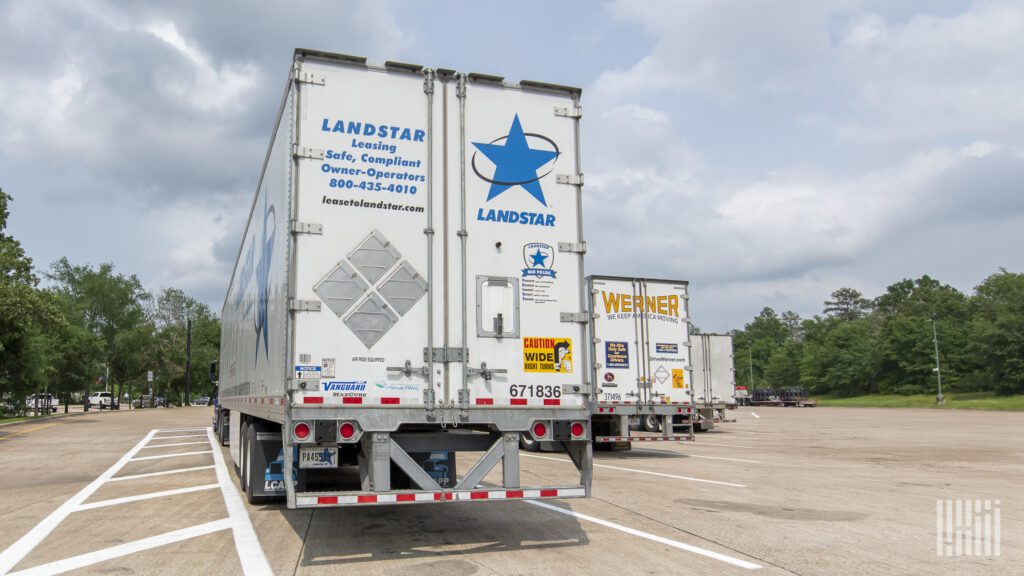Landstar System’s Challenging First Quarter
Landstar System faced a difficult first quarter primarily due to several pre-announced issues. Key factors included adverse claims development, rising accident severity, instances of stolen cargo, and fraud detected at a satellite office.
Earnings Overview
The company reported earnings per share of 85 cents for the first quarter, a decline of 47 cents compared to the previous year. This result was impacted by a 31-cent reduction due to increased insurance and claims costs, alongside a 10-cent impact, equating to $4.8 million, associated with a “supply chain fraud” linked to an affiliate.
Fraud Investigation Details
In late March, Landstar identified fraudulent activities at an independent agent office within its international freight forwarding segment. They noted that there was a change in ownership at the location and suspect that the fraudulent activities have been ongoing since 2019. This incident did not involve any company employees.
Ongoing and Future Implications
The investigation is still ongoing, but the costs already incurred are expected to be significant. Additional legal and professional expenses may arise, although there is potential for insurance recoveries as well. Landstar is actively pursuing civil and criminal actions in response to the fraud.
Revenue and Load Performance
For the first quarter, revenue totaled $1.15 billion, a year-over-year decrease of 1.6%, falling near the upper limit of the company’s initial guidance. Total truck loads saw a 1.2% decline year-over-year, while revenue per load decreased by 0.6%, against a forecasted range of down 2% to up 3%.
Outlook for the Second Quarter
Landstar is not providing formal projections for the second quarter due to the rapidly changing trade environment. In April, truck loads decreased by 2% compared to the previous year, with management indicating that the usual second-quarter growth trends might be absent this year. They expect revenue for the upcoming period to range between $1.15 billion and $1.23 billion.
Market Trends and Capacity Insights
The company noted that truck capacity provided by business capacity owners (BCOs) fell by 8.4% year-over-year, possibly indicating the lowest point of the cycle. Nonetheless, total truck capacity across the platform increased by 10,000 units, attributed to a new vendor assisting in vetting and onboarding operators. As of Tuesday morning, Landstar’s stock shares were down by 1.5%, while the S&P 500 saw a slight increase.


